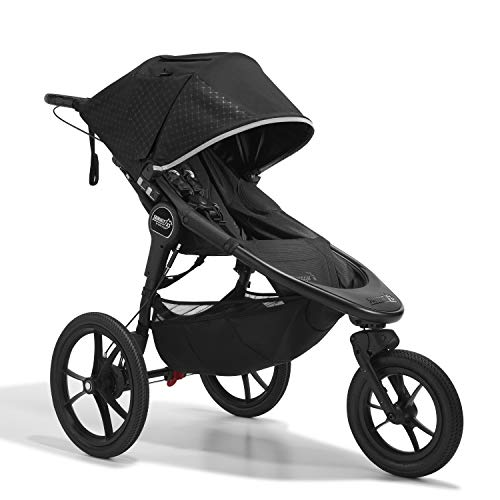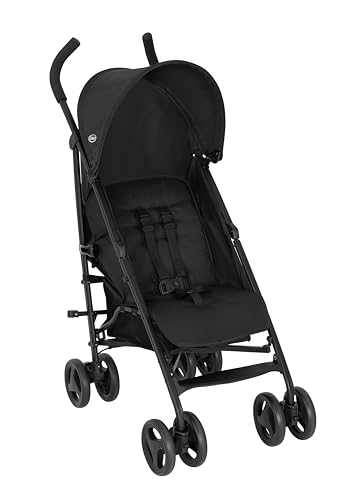You'll Never Be Able To Figure Out This Pushchair Single's Secrets
페이지 정보
Writer : Meagan
Date : 24-09-07 08:59
Hit : 107
Related Link
본문
What is a Pushchair Single?
 A pushchair single is designed to carry one child (although some are able to be used from birth using a car seat or carrycot). Some are light and convert into double.
A pushchair single is designed to carry one child (although some are able to be used from birth using a car seat or carrycot). Some are light and convert into double.
It is modern with a sleek design and features that make it a favourite with families, such as adjustable handlebars for height and a large basket. It also comes with machine-washable fabrics as well as a footmuff, an essential accessory for the colder months.
Convertible
If you're looking for a single lightweight stroller stroller that can adapt to your child's needs think about a convertible model. This type of stroller has a hammock seat which can be transformed into the form of a carrycot. It's a great option for babies. It's also lightweight and easy to fold.
The Larktale Crossover is a stroller/wagon that easily converts to a double-seater with no need for any tools. It's a great choice for parents as it comes with many features, such as an extensive undercarriage in both modes and an organizer that hangs from the push bar. There are a few disadvantages like the nebulous zipper for attaching the back of the seat in wagon mode, and the size of the cup holders.
Brakes
A well-built pushchair will come with several braking systems. The hand brake is typically an incredibly small single stroller lever-like device on the chassis. You can turn it down to stop the pushchair, and then push it back up to continue. This is particularly useful in urban areas where you may have to slow down rapidly, or on pavements at shopping centres where pedestrians might be present. The other type of brake system is the front wheel braking system found on higher end pushchairs such as the phil&teds dash as well as the Bugaboo Cameleon 3 which is activated by pushing the pedal in the same way as the brake on bicycles. This is particularly useful when you're jogging or going over rough terrain, since it will stop the pushchair immediately and ensure your child's safety.
The left coupling system 171 that connects the rear leg 57 and the front leg 19 has a rear leg mounting bar 173 to which the rear leg 57 is permanently to a gear 175 fixed to the side of the housing 33, which is positioned within hub 3; a bushing 177 that is connected to gear 175 and running through a slot 179 at the end of mounting bar 173 and a cable configured to wrap around the J-shaped spool component 181 and the post 31 of the front leg 19. The left coupling system 171 used for the rear leg 57 as well as the front leg 19 comprises a rear leg mounting bar 173 to which the rear 57 is fixedly coupled; a gear 175 mounted on the side surface 163 of the housing 33, which is positioned within hub 3; the spool component 181 and post 31 of the front leg 19 coiled around the J-shaped spool component 181 within a slot 179 at the end of the mounting bar 173; and a coiled cable.
The brake system 215 consists of a first end, 227 that is configured to contact braking cam in second position. It also has a second end 229. The second end of the lever for braking has a variety of teeth 231. The teeth are designed to be able to engage the teeth 232 of the gear 233 that is driven by a first rear wheel 59 on stroller 1. When the brake lever is pulled the braking cylinder stops the rotation of the first rearwheel 59 of stroller 1. The braking system can be operated by hand.
Seat unit/carrycot
A single standing stroller pushchair is a travel system for infants specifically designed for babies over six months who are just beginning to sit up. These can often be converted into a pram. Prams typically include more sophisticated features and are generally designed for newborns through to toddlers, with extra padding to keep your child comfortable.
Many pushchairs can be used together with car seats to make a travel system bundle, perfect for transferring sleepy babies from the car to the pushchair without causing any disturbance. Some pushchairs come with a carrycot, which is perfect for infants. Others have a seat unit that can be used to help your child get ready to move from the carrycot.
The majority of 'from-birth' pushchairs allow you to select the "facing direction" of the car seat or seat unit. You can either face the parent in order to connect and reassure your baby, or face the world to allow them to explore the world. Some pushchairs let you attach an additional carrycot, infant carrier or ride-on board.
A quality pushchair must be able to move with ease over a variety of surfaces, including pavements, grass and rough surfaces. A sturdy chassis and high-quality tyres are crucial. Certain tyres require air to be added frequently, whereas others are made of alternative materials like EVA and PU, which offer an enjoyable ride.
It's worthwhile to invest in a pushchair that's easy to keep clean and maintained. You can clean up crumbs and spills with the baby-wipe, however when you want to remove more stubborn marks, you can use the hot air of a hair dryer for 1 to 2 minutes.
 A pushchair single is designed to carry one child (although some are able to be used from birth using a car seat or carrycot). Some are light and convert into double.
A pushchair single is designed to carry one child (although some are able to be used from birth using a car seat or carrycot). Some are light and convert into double.It is modern with a sleek design and features that make it a favourite with families, such as adjustable handlebars for height and a large basket. It also comes with machine-washable fabrics as well as a footmuff, an essential accessory for the colder months.
Convertible
If you're looking for a single lightweight stroller stroller that can adapt to your child's needs think about a convertible model. This type of stroller has a hammock seat which can be transformed into the form of a carrycot. It's a great option for babies. It's also lightweight and easy to fold.
The Larktale Crossover is a stroller/wagon that easily converts to a double-seater with no need for any tools. It's a great choice for parents as it comes with many features, such as an extensive undercarriage in both modes and an organizer that hangs from the push bar. There are a few disadvantages like the nebulous zipper for attaching the back of the seat in wagon mode, and the size of the cup holders.
Brakes
A well-built pushchair will come with several braking systems. The hand brake is typically an incredibly small single stroller lever-like device on the chassis. You can turn it down to stop the pushchair, and then push it back up to continue. This is particularly useful in urban areas where you may have to slow down rapidly, or on pavements at shopping centres where pedestrians might be present. The other type of brake system is the front wheel braking system found on higher end pushchairs such as the phil&teds dash as well as the Bugaboo Cameleon 3 which is activated by pushing the pedal in the same way as the brake on bicycles. This is particularly useful when you're jogging or going over rough terrain, since it will stop the pushchair immediately and ensure your child's safety.
The left coupling system 171 that connects the rear leg 57 and the front leg 19 has a rear leg mounting bar 173 to which the rear leg 57 is permanently to a gear 175 fixed to the side of the housing 33, which is positioned within hub 3; a bushing 177 that is connected to gear 175 and running through a slot 179 at the end of mounting bar 173 and a cable configured to wrap around the J-shaped spool component 181 and the post 31 of the front leg 19. The left coupling system 171 used for the rear leg 57 as well as the front leg 19 comprises a rear leg mounting bar 173 to which the rear 57 is fixedly coupled; a gear 175 mounted on the side surface 163 of the housing 33, which is positioned within hub 3; the spool component 181 and post 31 of the front leg 19 coiled around the J-shaped spool component 181 within a slot 179 at the end of the mounting bar 173; and a coiled cable.
The brake system 215 consists of a first end, 227 that is configured to contact braking cam in second position. It also has a second end 229. The second end of the lever for braking has a variety of teeth 231. The teeth are designed to be able to engage the teeth 232 of the gear 233 that is driven by a first rear wheel 59 on stroller 1. When the brake lever is pulled the braking cylinder stops the rotation of the first rearwheel 59 of stroller 1. The braking system can be operated by hand.
Seat unit/carrycot
A single standing stroller pushchair is a travel system for infants specifically designed for babies over six months who are just beginning to sit up. These can often be converted into a pram. Prams typically include more sophisticated features and are generally designed for newborns through to toddlers, with extra padding to keep your child comfortable.
Many pushchairs can be used together with car seats to make a travel system bundle, perfect for transferring sleepy babies from the car to the pushchair without causing any disturbance. Some pushchairs come with a carrycot, which is perfect for infants. Others have a seat unit that can be used to help your child get ready to move from the carrycot.
The majority of 'from-birth' pushchairs allow you to select the "facing direction" of the car seat or seat unit. You can either face the parent in order to connect and reassure your baby, or face the world to allow them to explore the world. Some pushchairs let you attach an additional carrycot, infant carrier or ride-on board.
A quality pushchair must be able to move with ease over a variety of surfaces, including pavements, grass and rough surfaces. A sturdy chassis and high-quality tyres are crucial. Certain tyres require air to be added frequently, whereas others are made of alternative materials like EVA and PU, which offer an enjoyable ride.
It's worthwhile to invest in a pushchair that's easy to keep clean and maintained. You can clean up crumbs and spills with the baby-wipe, however when you want to remove more stubborn marks, you can use the hot air of a hair dryer for 1 to 2 minutes.





 TOP
TOP